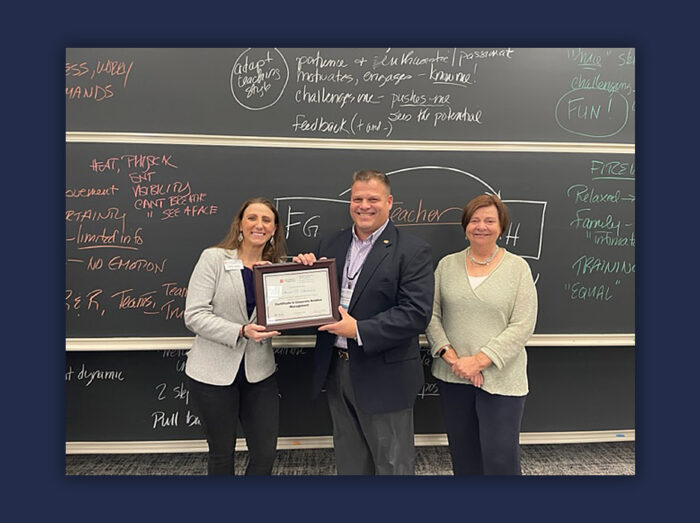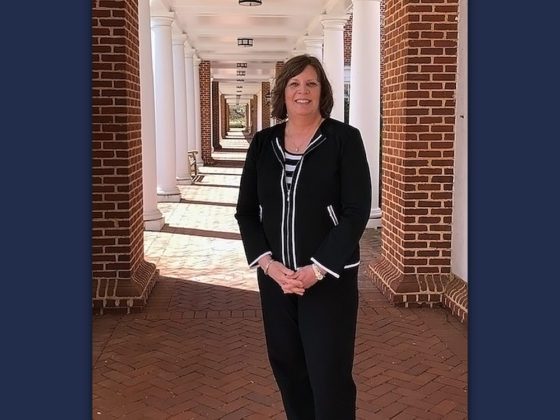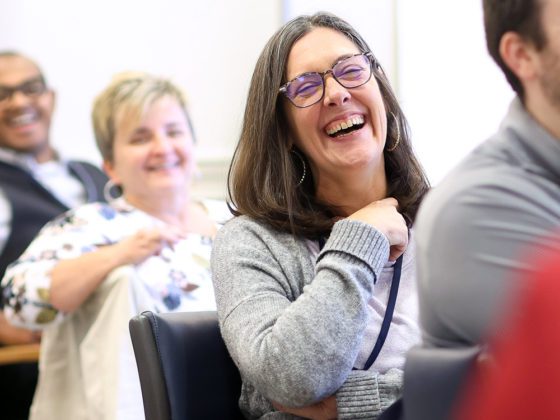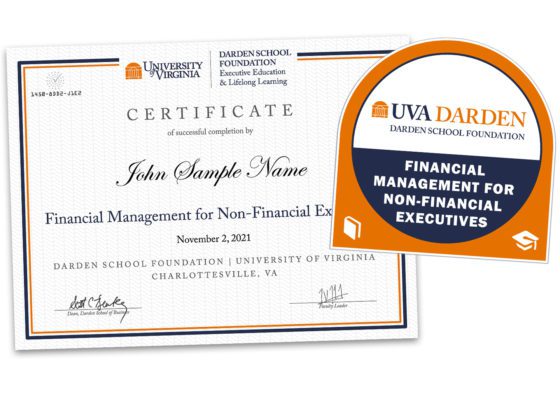Stuart Swanson is a Chief Pilot for SC Johnson and serves as the Vice Chairman on the Certified Aviation Managers Governing Board for the National Business Aviation Association (NBAA), and Co-Chairman for the Chief Pilots Roundtable. Prior to his current role, he served in the Army Reserve for 20 years, completing several tours, before deciding to retire. Swanson committed to being a student of leadership throughout his career and that journey led him to pursue Darden Executive Education & Lifelong Learning’s Certificate in Corporate Aviation Management. He shares more about his career and lifelong learning journey, the impact of his time at Darden and how he strives to continually apply what he’s learned.
Tell us more about your current role and your career journey.
As the Chief Pilot for SC Johnson located in Racine, Wisconsin, I am responsible for the tactical day-to-day operations of our flight department. Currently, our department consists of sixteen team members, flying and maintaining two aircraft, in support of global flight operations anywhere in the world, with the exception of Antarctica, for now.
I started out my career in the Army Reserve, flying helicopters and airplanes, and then transitioned into commercial flying as a contractor with SC Johnson back in the mid ‘90s. I also flew for Skyway Airlines and Midwest Airlines, all while being in the Army Reserve and being deployed several times, including Kuwait in the ‘90s and two tours in Iraq after the September 11th attacks. I retired from the Army Reserve after 20 years. With a downturn in aviation at the time, I was going to be furloughed again from the airlines, so I started flying for the owner of the Minnesota Wild hockey team. After five years of owner-operated and charter flying, I was offered a full-time job with SC Johnson as the Helicopter Supervisor and became Chief Pilot five years later.
How did you end up coming to Darden?
Word of mouth from others in the aviation industry. In corporate aviation, Darden is considered the gold standard for aviation management and executive learning. The former Chief Pilot and Senior Director of SC Johnson had attended at least one Darden program, so the company had already recognized the value of the coursework and had been sending people to Darden over the years.
I have received both technical and soft skill development opportunities while attending all three [Corporate Aviation] programs, and I like that Darden blends both concept and practical application into what we learn.
What have you taken away from the programs that you’ve completed at Darden?
Each program resonated differently with me and has provided unique takeaways. Managing the Corporate Aviation Function was a more intense, detail-oriented program where there was a lot of pre-course work, with a very useful aviation-based financial focus. The other two programs, Developing Leadership Capability in the Corporate Aviation Function and Leading Change in the Corporate Aviation Function, focused more on leadership and change management. These topics focus more on soft skills, which is an area I think every leader can grow and develop in. I have received both technical and soft skill development opportunities while attending all three programs, and I like that Darden blends both concept and practical application into what we learn.
What are some of the learnings that you’ve brought back and put into practice?
The biggest thing that I have brought back was the self-realization of the individual course concepts. I am more of an introvert and the results of my personal analysis did not surprise me, but it was interesting to have the self-reflection time to gauge my process. In practical application, you have those moments as a leader where you question if you made the best or right decision and then hopefully apply what you have learned to make better future decisions. I think learning those concepts and understanding yourself more helps you apply what you learn practically, in a way that works with your natural leadership style.
What would you say makes Darden’s Corporate Aviation programs unique?
You have a concentrated environment to work in. You have a smattering of concepts in the theory, but then you are able to immediately apply them in practical application. Every day in these programs you are applying what you learn in some form, whether working on charts, open discussions or breaking up into small groups. You learn about yourself and the theory of being a leader or managing a flight department and then put the newly learned knowledge into practice.
How have these programs helped you move towards your career goals?
The next natural progression in my career is typically Senior Director of Aviation. Every one of these programs has been a gap analysis for me, not only with this progression in mind, but also to fortify my effectiveness in my current position. To gauge progress, I ask a few simple questions: What is my skill set when I walk in the door? What is it when I leave? How can I carry my new skills forward? I have gone to a lot of NBAA events and functions where I leave ready to change the world and then everyday issues at work can start to bog me down, lessening the results I would like to achieve. I think the challenge with any course, including these programs, is to carry on what you learned as you move forward.
The schedulers on my team have noticed that I have been applying concepts from Darden, which we discuss occasionally as leadership questions come up. I regularly keep my gap analysis in mind to ensure the practical application of what I have learned in class. I believe it is helping me identify the steps to make it to the next level. I have begun correlating concepts I have picked up in class to real-world situations that may not be directly related; however, the concepts remain applicable. I may not need a technique or skill for a while and then six months may go by, and a situation arises that reminds me of something I learned at Darden. I reach in that tool belt and the right tool is there.
If you are constantly putting out fires, that’s going to become a new normal to you and you may become numb to it. Sometimes you must remove yourself from the environment or change your behavior to avoid being changed by the environment you are in.
Can you share some of those moments?
One of the things that really had an impact on me was one of Lynn Isabella’s discussions in a previous course, that centered around the theme of “drop your tools.” It was one of those discussions that really made me think and had a profound impact on me as a leader. I don’t recall the exact details of the story, but a team didn’t want to drop their tools because they were expensive, and they did not want to buy replacements. However, if they hadn’t been bogged down by the extra weight of their tools, they would have been able to reach a safe place and live through a situation. In the last program I completed, we talked about change and that subtracting something to make a change, rather than adding an item, may be more beneficial. I found the correlation back to Lynn’s story to be timely and relevant.
I also found correlation in our discussion based on the firehouse scenario, where the fire house is one environment and then the actual fire grounds are a different environment. It’s easy to be changed by your environment. It reminded me of my tours in Iraq, when compared to flying stateside, where each flight is either high, medium, or low risk. During my tours, every mission was high risk, rapidly becoming the new normal for me and my other crew members. When immersed in high-risk situations it is easy to become cavalier to the threats that have become an everyday occurrence. Identifying any negative shift in perception and putting immediate corrective measures in place is often difficult to accomplish in the early stages of a new “normal.” The correlation that I made to my work environment is if you are constantly putting out fires, that’s going to become a new normal to you and you may become numb to it. Sometimes you must remove yourself from the environment or change your behavior to avoid being changed by the environment you are in.
How did you decide to complete all three programs and earn your Certificate in Aviation Management?
I have had great leaders and some that weren’t so great during my time in the civilian sector and the military. These experiences made me want to be a student of leadership, to apply those concepts employed by effective leaders and avoid the missteps that have hampered others. There are so many options out there, but Darden’s certificate program is specific to aviation. I wanted to get all that I could out of my Darden experience by attending in person and being immersed in the process, to include the incredible networking opportunities. I look at earning this certificate as another steppingstone to becoming a better, more well-rounded leader in my industry.




